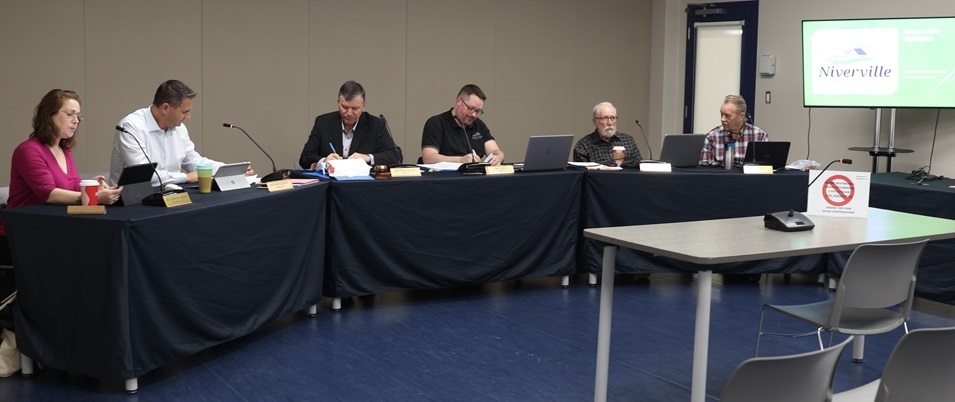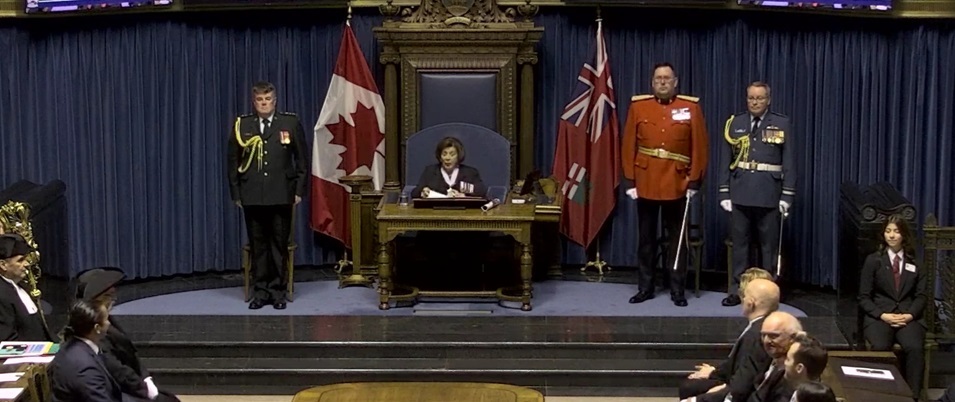
When Niverville resident Rob Byers awoke on September 20 with chest pain, he knew he needed to get to a hospital. Byers is 67, has heart disease, angina, a blockage in his heart, and high blood pressure. His wife Marie called 911 at about 7:15 a.m. Niverville Fire and an EMS crew arrived shortly thereafter.
“EMS did their checks, said things looked normal and stable, but [they] were still going to take me to St. Boniface,” wrote Byers in a letter to Southern Health, our regional health authority, in the weeks following the episode. “Niverville Fire advised Marie to get dressed, as she would be going in the ambulance.”
However, that’s when the EMS crew stepped in and made a decision—a decision Byers characterises as devastating and arbitrary—which caused a great deal of anxiety.
“EMS stated that their policy would not allow Marie to come with us,” Byers continued. “She would have to find her own way to the hospital.”
This, Byers said, was flatly impossible. Marie has her own very serious health problems and was not able to drive. Not only that, but all of the couple’s friends and family live in Winnipeg, so Marie didn’t have anyone to give her a ride to the hospital.
Despite a lengthy face-off, the ambulance left Marie behind. Fortunately, she was able to find a neighbour to drive her to Winnipeg.
“They did not stop and consider us or our situation,” Byers says of the hassle. “There was no discussion or questions from them at all, just an outright no and a refusal to take Marie as a passenger. In fact, there was no discussion among the two EMS personnel. It was just the one EMS person who made the decision and statement.”
Byers argues that he and his wife serve as each other’s advocate and power of attorney in the event of a medical emergencies. They are uniquely aware of each other’s health history, medications, surgeries, and allergies.
“The current Non-Medical Escort policy, which has been in place since May 2016, enables our EMS staff to accommodate requests for accompaniment on a case-by-case basis,” wrote Kathy McPhail, Chief Executive Officer of Southern Health, in reply to Byers’ complaint. “Our EMS staff considered the potential for an emergency or urgent situation that may involve emergent operation of the EMS vehicle and the potential exposure and subsequent impact such an event might have upon your wife at that. I am sure you will appreciate, an ambulance, unlike a facility, does not offer an environment that affords the ability to support a family member should they become overwhelmed by a situation.”
Byers points out, however, that the EMS staff had found Byers to be stable before their departure. The ambulance didn’t use lights or sirens on the trip to Winnipeg.
Following the incident, Byers followed up with several other health authorities to compare their policies. The EMS manager at Northern Health said they would have taken Marie under the circumstances presented. The EMS supervisor at Prairie Health indicated that they, too, would have taken Marie, describing it as a simple “drop and go” situation. Rick Clear, Assistant Chief EMS for the Winnipeg Fire Department, also said his department would have accommodated Marie, as they often find it helpful to have family on hand.
Byers spoke next with Joy Pritchett-Sheridan, an EMS officer for Manitoba Health. “Joy said that she worked previously as the EMS Director of Southern Health, and their crews were told to take the spouse with them but ensure that they were told they would not be giving them a ride home,” Byers says. “Joy also confirmed it was important due to the distance [in] rural areas to give a spouse or passenger a ride to the hospital as they may have no other way of getting there.”
In a subsequent conversation, a representative from Southern Health cited liability issues for the need for their Non-Medical Escort policy. However, Byers was told by a different representative that Southern Health had adequate liability insurance for such a scenario.
A spokesperson for the province now says that a provincial group is in the process of reviewing all regional EMS transportation policies to ensure that all of Manitoba’s health authorities are consistent with each other. In the meantime, Southern Health is sticking by their policy until a provincial standard is instituted.



















